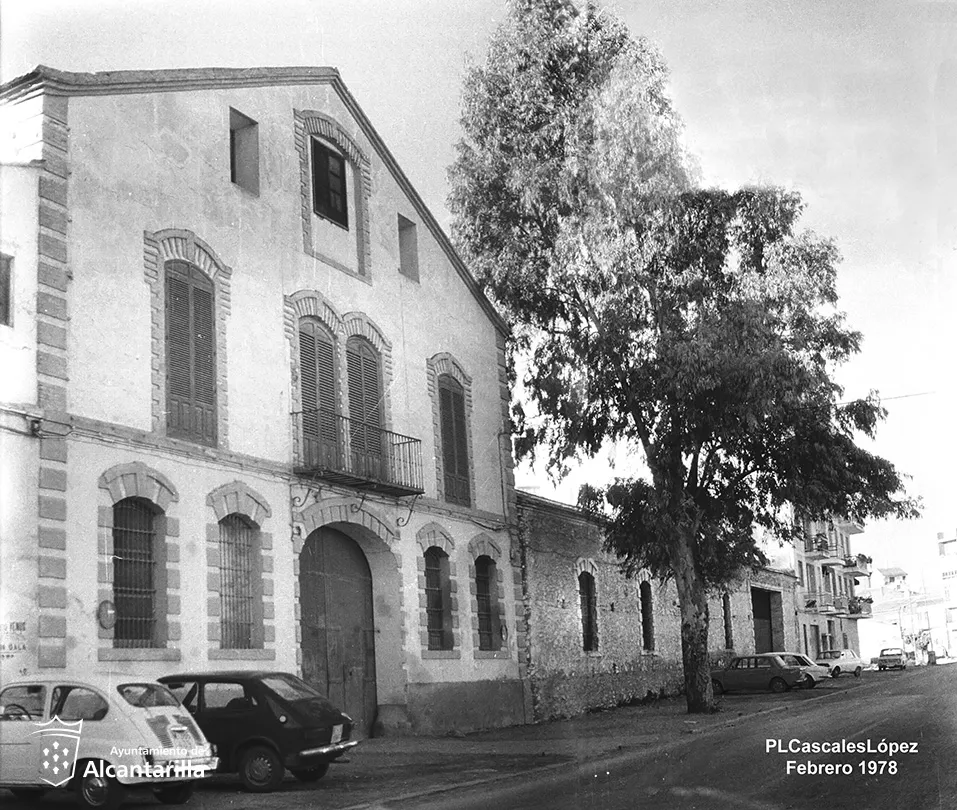
Juan Esteva Canet’s vegetable canning factory was the first canning industry in Alcantarilla, and one of the first in the Region of Murcia.
In 1897, Juan Esteva, son of the important Mallorcan industrialist Antonio Esteva Oliver, supplier of the Royal Household, settled in Alcantarilla, in a place near the old Posada del Viruta in Calle Mayor, to continue the industrial activity started in Palma de Mallorca in the manufacture of sweets and canned fruit, mainly apricots. The decision to settle in our town was backed by several reasons, among them, its good location, the railway, and the quality of one of the products they most needed for their production: the apricot búlida.
Later, the factory would move to its current location. In 1904, Juan Esteva applied to the Town Hall for a licence to build a house and factory on the Region of Murcia, next to the Turbedal irrigation channel, in order to ensure the water supply.
It is a three-storey industrial building inspired by the Catalan industrial models of the first third of the 20th century. It forms part of the heritage legacy of the canning industry in the Region of Murcia, as an example of industrial architecture in its first stage, when the factory and the industrialist’s home shared the same space.
Inside, the ground floor was used for the factory premises, and next to the building’s staircase was the industrialist’s office. This floor gave access to the courtyard, where two large sheds were installed with their circular chimney, 22 metres high. It was the first industrial chimney built in Alcantarilla, in 1907, and it was surrounded by a large area that would be used for drying apricots, bordering the orchard. The main floor of the building was used as a private home for three generations of the Esteva family. The total constructed area of the building and adjoining courtyard was 10,892 m2.
The factory maintained an important industrial activity in vegetable preserves and chocolate production, marketing its products under the brand names «El escudo de España», «Non-Plus Ultra», «A-Z» and «Buena Salud», the company’s hallmarks both nationally and internationally.
From 1968 onwards, the facilities continued to operate under the successor Juan Esteva Salom, as an ice factory and industrial cold rooms, until its definitive closure in 1982.
The Esteva factory is testimony to the period of economic prosperity that Alcantarilla experienced during a large part of the last century, thanks to its market garden, its inhabitants, and its excellent transport communication networks. Currently, three of the eleven industrial chimneys that were active in this industrial sector of the canning industry are still preserved: Esteva, Esencia and Silla. Others belonging to different industrial activities have also survived to the present day, which continue to give the landscape those silhouettes that bear witness to the industrial activity that characterised Alcantarilla in the 20th century.
The building, which was a factory and a house, was catalogued in 2007 for its cultural relevance, and the industrial chimney in 2016, with the category of inventoried property.
